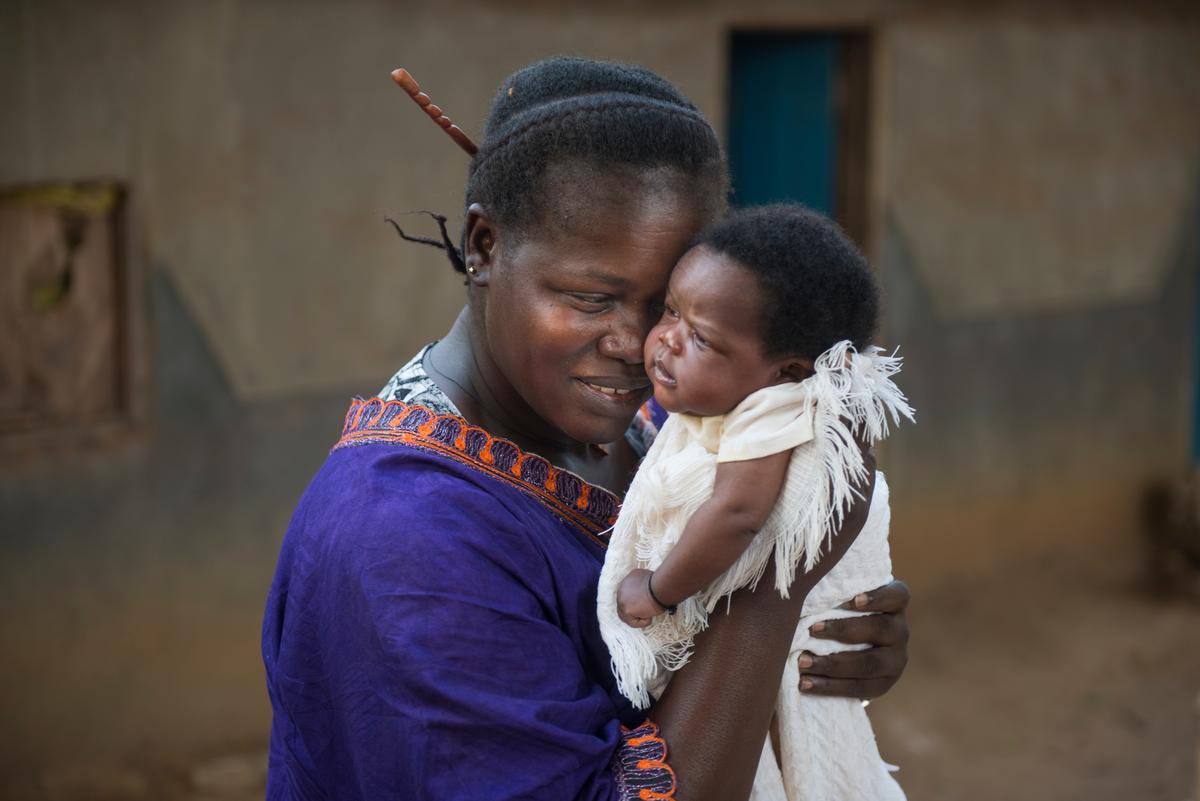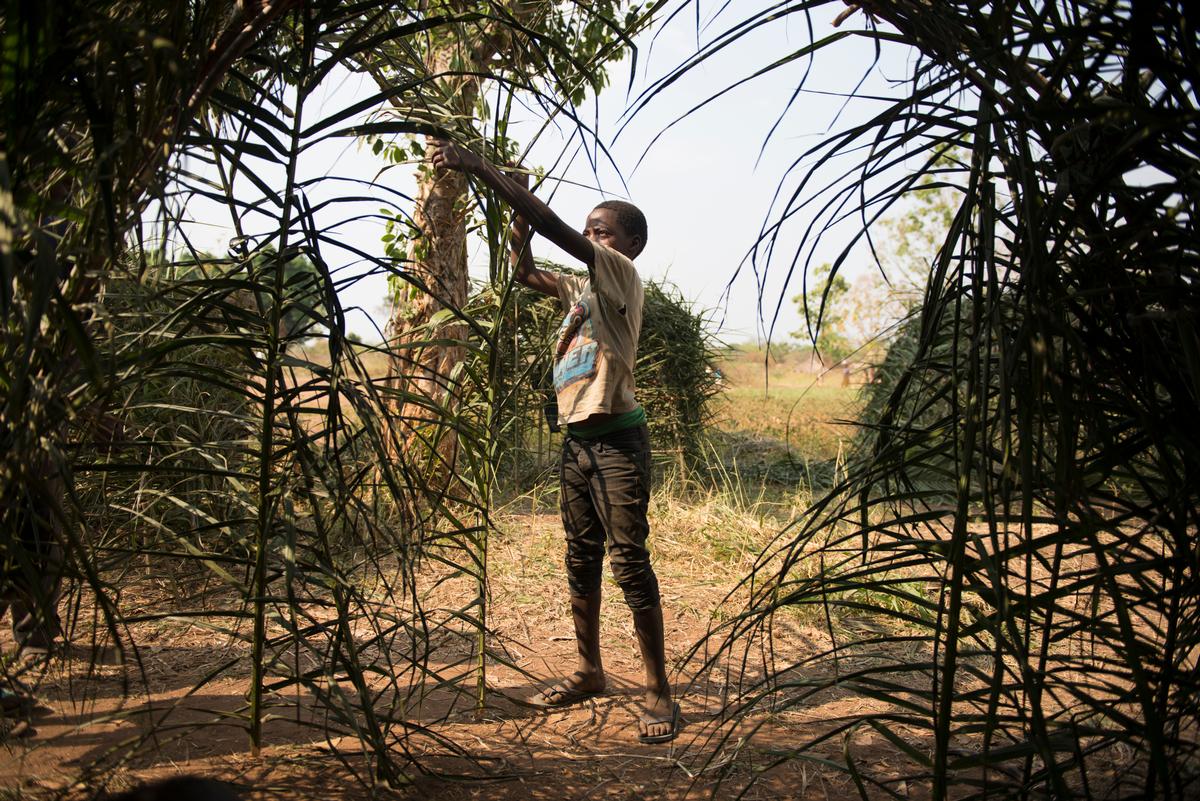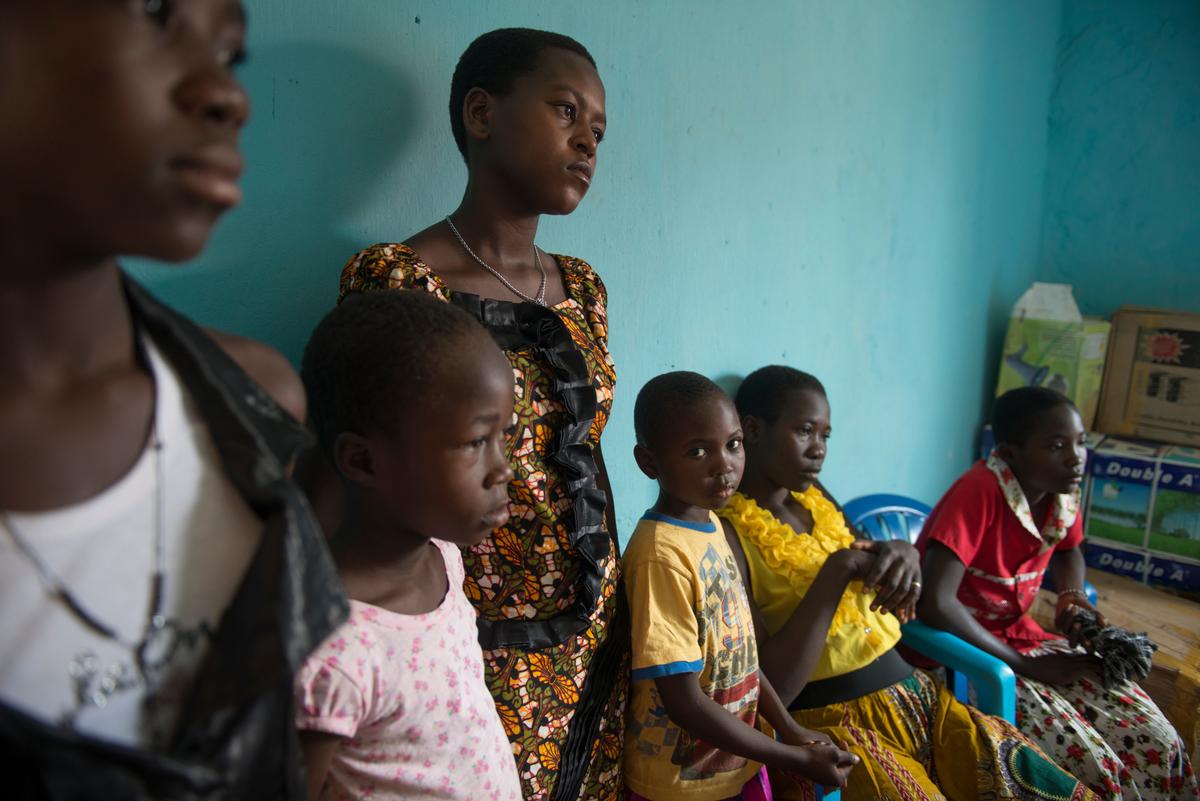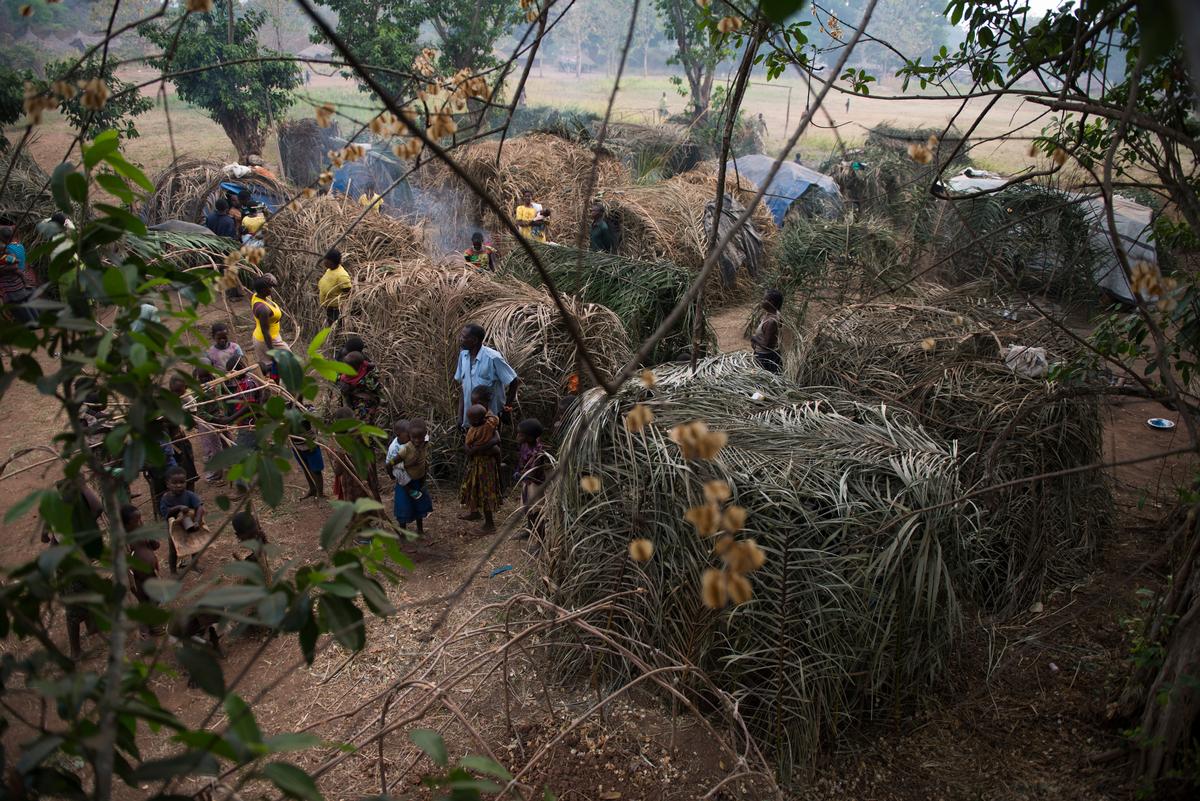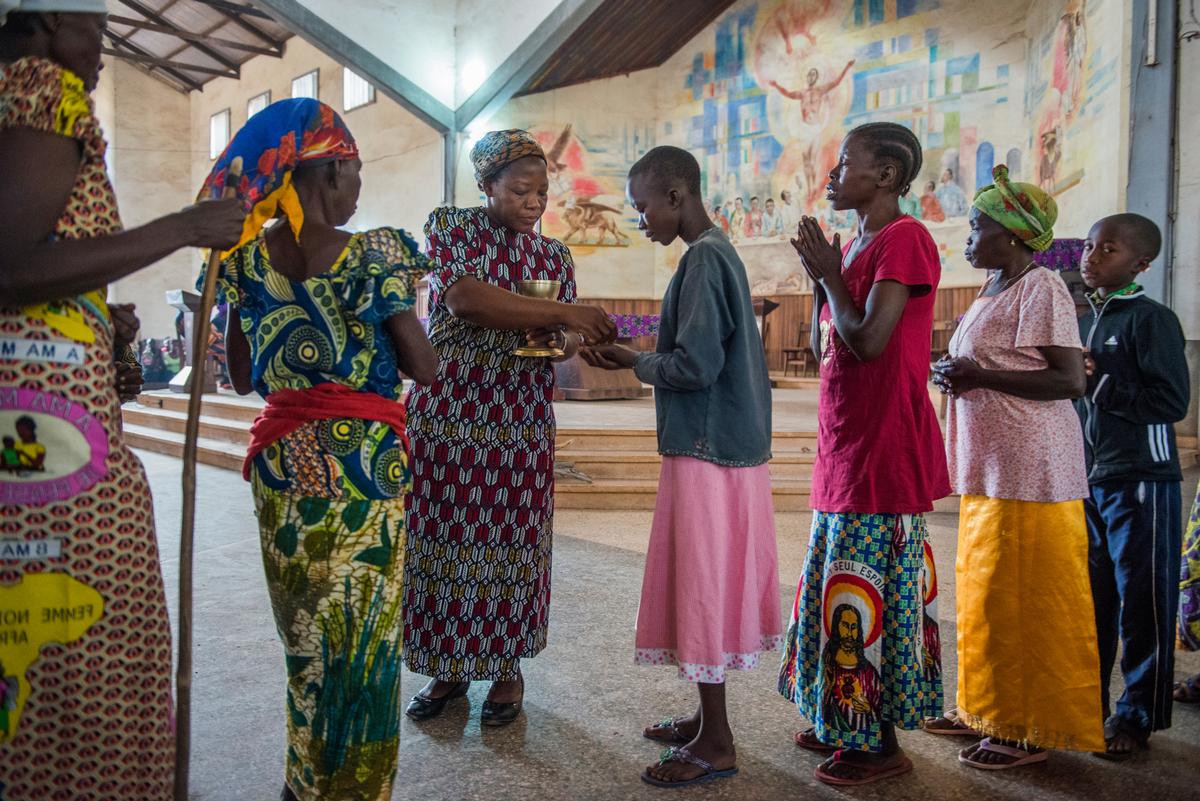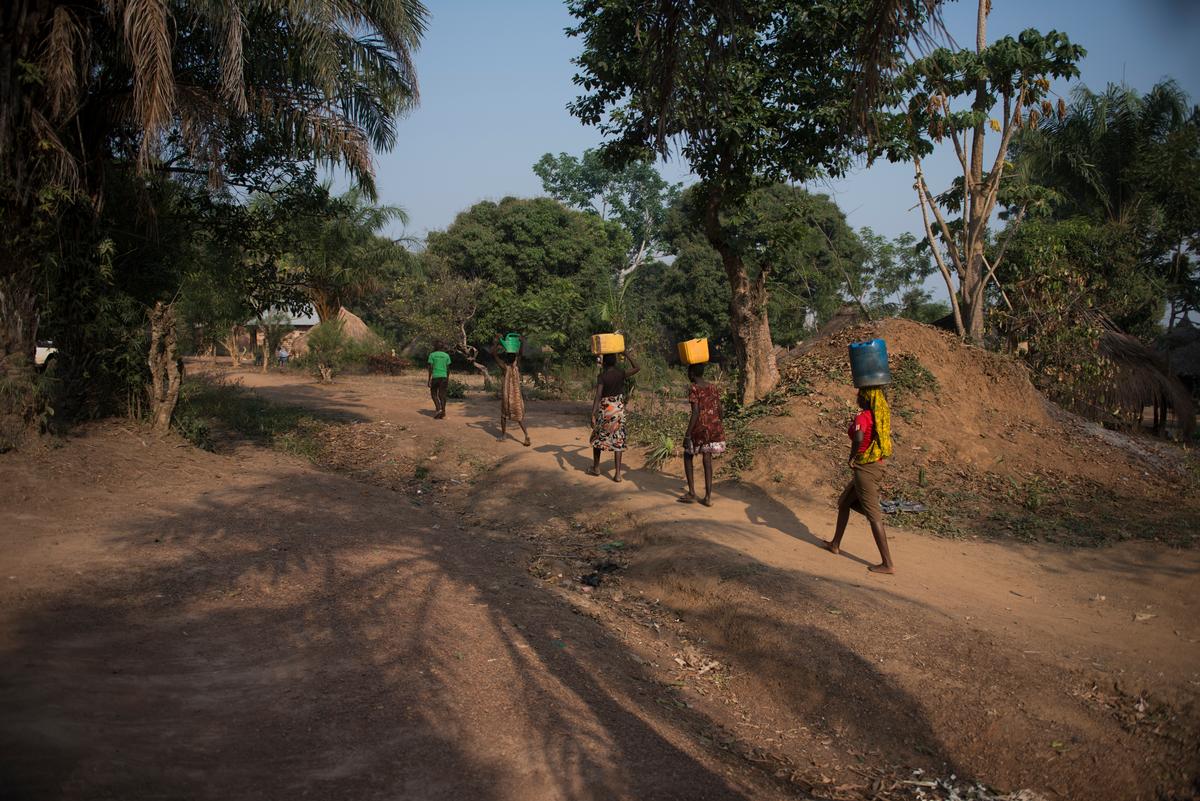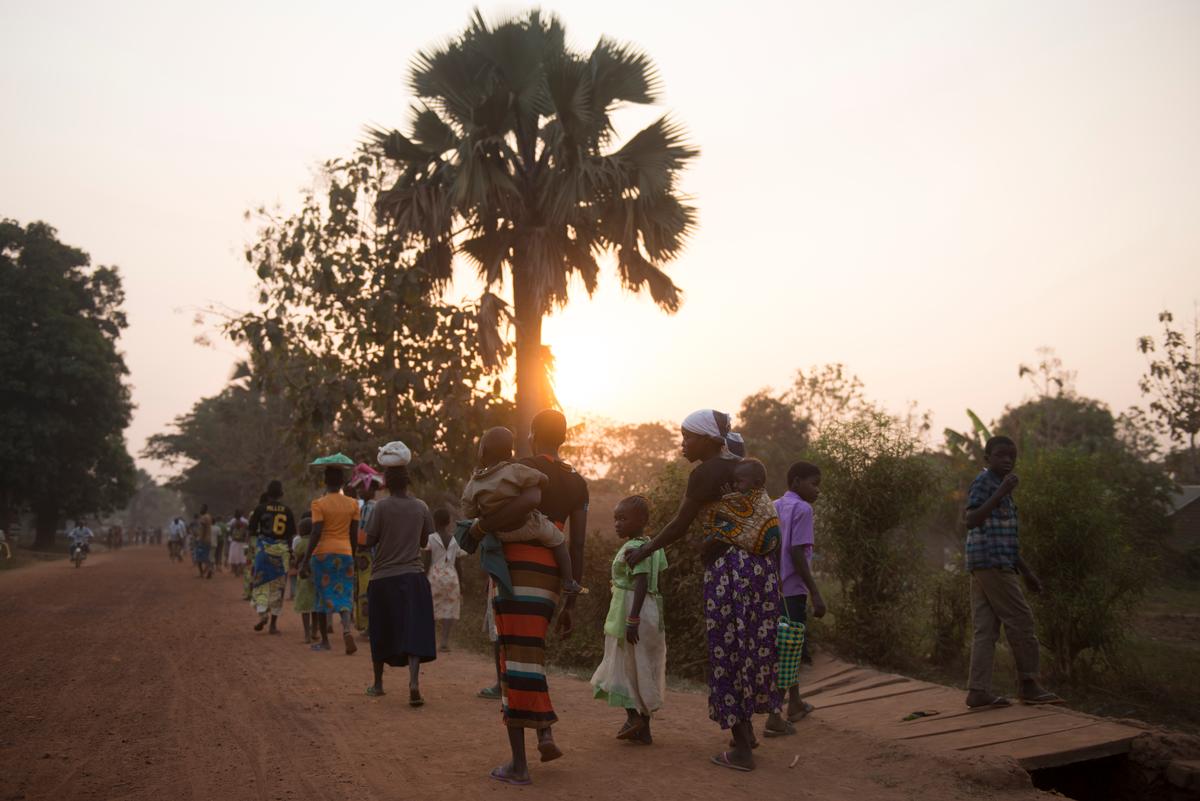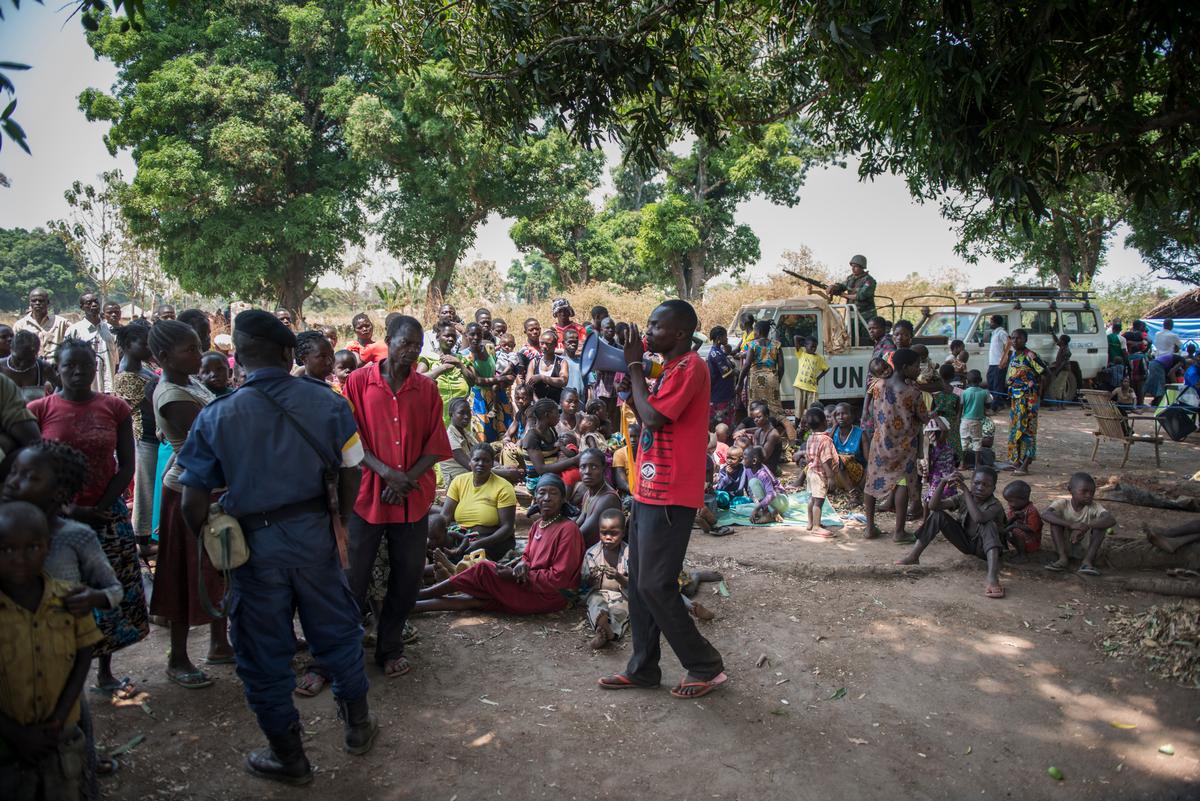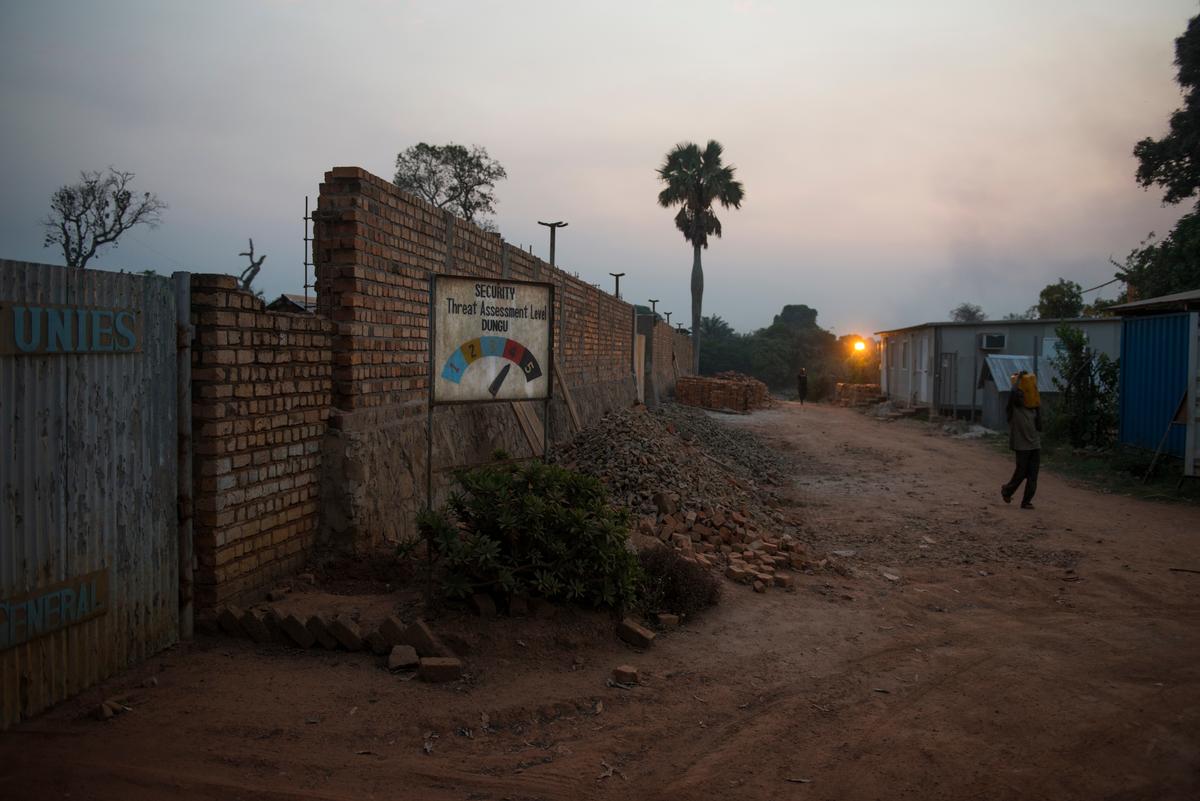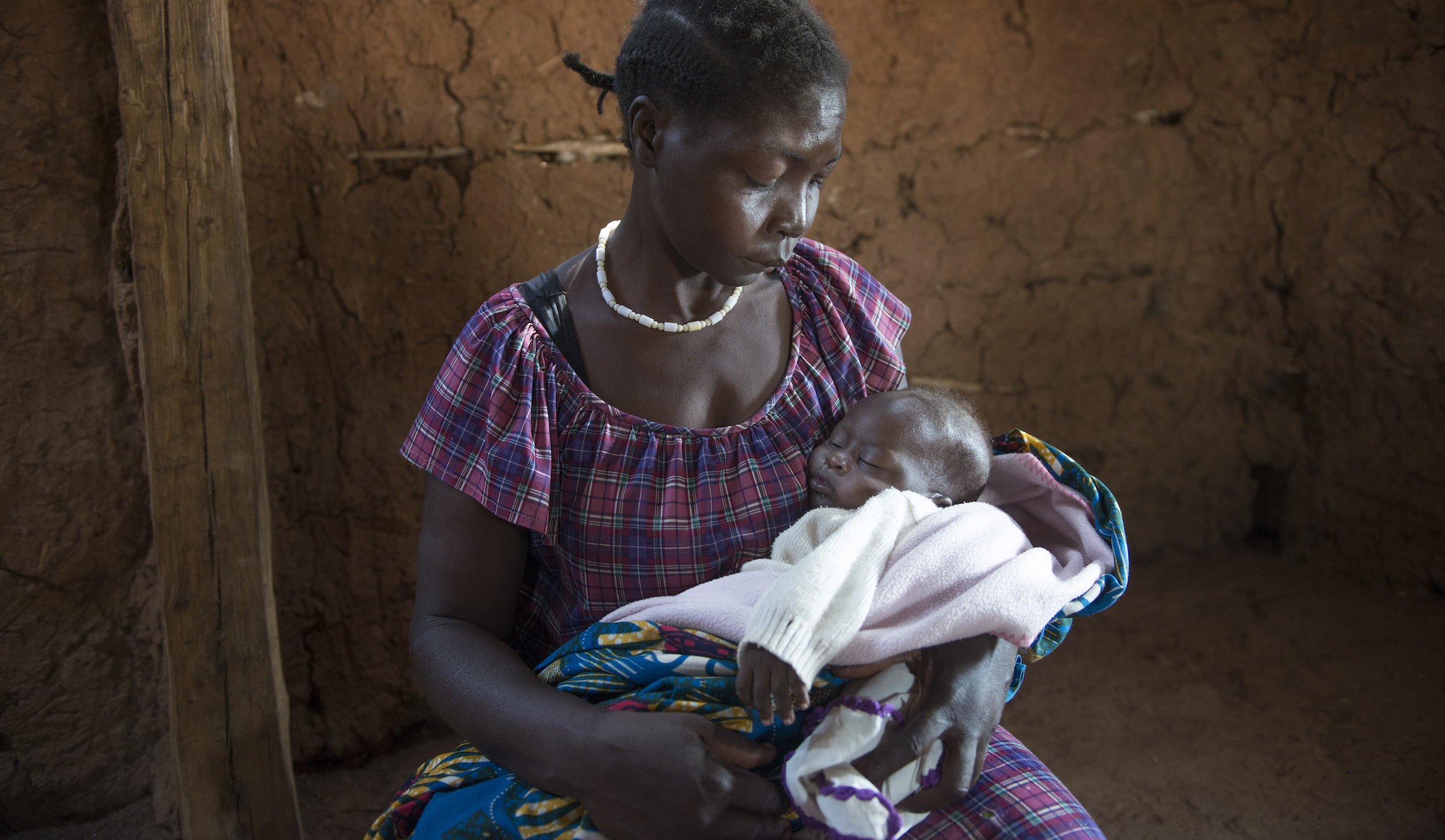 Faustina Joseph fled to DRC with her baby after her husband was killed.
Faustina Joseph fled to DRC with her baby after her husband was killed.UNHCR/Colin Delfosse
Faustina Joseph fled to DRC with her baby after her husband was killed.
UNHCR/Colin Delfosse
Escaping the Horrors of Home
Meet some of the thousands who have fled fighting in previously peaceful provinces in South Sudan, where militia are accused of killing, raping and looting.
One evening while he was still celebrating the birth of his first son a week earlier, Philip Bati answered a knock on the door at home in Yambio in South Sudan.
Expecting well-wishers, instead he found men with guns on his doorstep, demanding money. It had been an expensive week since his son’s birth, and Philip, 35, was broke. He had no chance to plead for his life.
“He was shot right at the door, since he had nothing to give them,” says Faustina Joseph, Philip’s wife. She was next door at the time, showing off the baby to the neighbours. “They pushed his body inside, blocked the door, and set fire to the house, burning him with it.”
Yambio, the large town in southern South Sudan where the couple lived, is far from the swamps and savannahs to the north and east that have been ravaged in the country’s two-year rebellion. That fighting, between its government and forces loyal to its vice-president, has killed 10,000 people and driven 2.3 million from their homes, stoking catastrophic hunger.
Emmanuel Mborie-Idie, 16, fled to DRC with his six younger sisters after gunmen stormed his village in South Sudan last Christmas. UNHCR
Until recently, the south was peaceful. But those fleeing say violence has now spread there, too. Faustina, 35, grabbed the children and fled south, to the Democratic Republic of the Congo, where today they live in a makeshift refugee encampment in a village called Bitima, close to the South Sudan border. Mboringba, her once-healthy son, now lies in bed at the rudimentary clinic with acute malnutrition. Her daughter has malaria.
They are among tens of thousands of victims of a surge in killings, rapes, child abductions and lootings that is driving a new regional refugee crisis, barely noticed internationally despite the fact it has spilled across the borders of four central African countries.
At night, rebels steal out from their rural strongholds into state-controlled towns, raping women and girls, looting property and kidnapping children. Those who resist are killed. During the day, the army retaliates, targeting real or imagined rebel supporters.
“They pushed his body inside, blocked the door and set fire to the house, burning him with it.”
The fighting began in May 2015, spiking again in August, at Christmas and New Year and most recently in the middle of February. This is the first time the stories of those who reached safety have been told to a global audience.
James Wamwite, a mechanic from Yambio, arrived to the north-eastern Congolese town of Dungu on February 14. It had been three days since the latest fighting left his great-grandmother dead with her throat slit, his house burnt to the ground, and his business looted.
He slipped across the border riding a motorbike with his four young children clinging on behind, forced to leave his terrified wife and their newborn baby in the care of relatives.
“You may not believe me, but if you move around parts of Yambio today, what you will find everywhere is the smell of dead bodies, the graves of people who have been burnt, houses turned to ashes,” says James, 33, the strain of sleepless nights etched on his face.
“One of the things happening that is hard to describe is they come and knock at your door, then they come in and tie you down and rape your wife or your young girls in your presence. The hard thing to know is, who is doing this? There are so many people with guns, who is the rebel and who is the soldier? That one we don’t know.”
Eunice Romai, 29, fled fighting three days after giving birth, on Christmas Eve, to a daughter she named Chance. Despite still needing medical care, she and her family walked for three days to reach safety, sleeping under trees, without food or medicine, unable even to wash. In the bed next to hers at the hospital where Chance was born was another expectant mother, seven months pregnant.
“She had been raped, by seven men with guns,” Eunice says, her voice tight with quiet fury. “I heard they also raped nuns at the Catholic church. This is something really serious, I was born and grew up in South Sudan when it was at war, and I never saw things like this, I never heard guns like we were hearing every night there.”
I was born and grew up in South Sudan when it was at war, and I never saw things like this.”
The help these people now need to survive here in Congo – itself ravaged by years of wars, militia rebellions, and careless government – is slowly increasing, but aid resources are stretched thin among other crises.
UNHCR, the UN Refugee Agency, and the Congolese authorities are expecting to individually register more than 4,000 South Sudanese during visits to the remote areas of northern Congo in late February and early March. UNHCR has already distributed essential items like pots, soap and water cans. The World Food Programme has given food and more is coming.
Similar efforts are underway in other places where the people displaced by this crisis have fled – in South Sudan itself, and in the Central African Republic and Uganda.
A great deal more is needed, says Josselyn Midadje, a UNHCR protection officer leading the registration operation in Congo. “What is important to do to save human lives now is for the international community to turn their eyes to this crisis, and give it the same attention as the Libyan crisis, or the crisis in Syria that we talk about so much,” she insists.
“This South Sudan crisis is one nobody talks about. These are really harsh conditions for these people, and I think in terms of shelter, food and medicine, we need to intervene very quickly.”
Children, targeted by the militia, continue to struggle even if they have reached safety. Michael Agima, a 17-year-old who was top of his class in science and wanted to be an engineer, saw boys in his class kidnapped to be child soldiers. Once abducted, rebel commanders forced them to call on friends, tricking them to come out and be taken hostage as well. “I’m worried because I don’t think I can finish my schooling now,” he says. “But I could not stay there to be a soldier.”
“This South Sudan crisis is one nobody talks about.”
Victoria Miidie, 16, saw her friends being taken by the rebels, too. “Some were being raped, some were being forced to cook for the gunmen,” she says. “If you refuse maybe they cut off your head or shoot you dead there in the bush.”
The trauma of the survivors is intense, and each is left to cope in their own way. In January, Justine Underete’s front room became a frontline during a gun battle in Yambio, when her husband was away. She took the children and fled to Congo, and has not heard from him since.
“The children miss their father,” she says. She pauses, lost in thought. “Sometimes, I hold my phone to my ear and pretend I’m talking to him. I tell them he says he’s coming soon. They say, ‘Oh good, ask him to bring us sweeties’. Of course I can’t tell them that I don’t even know if he is alive or dead.”
